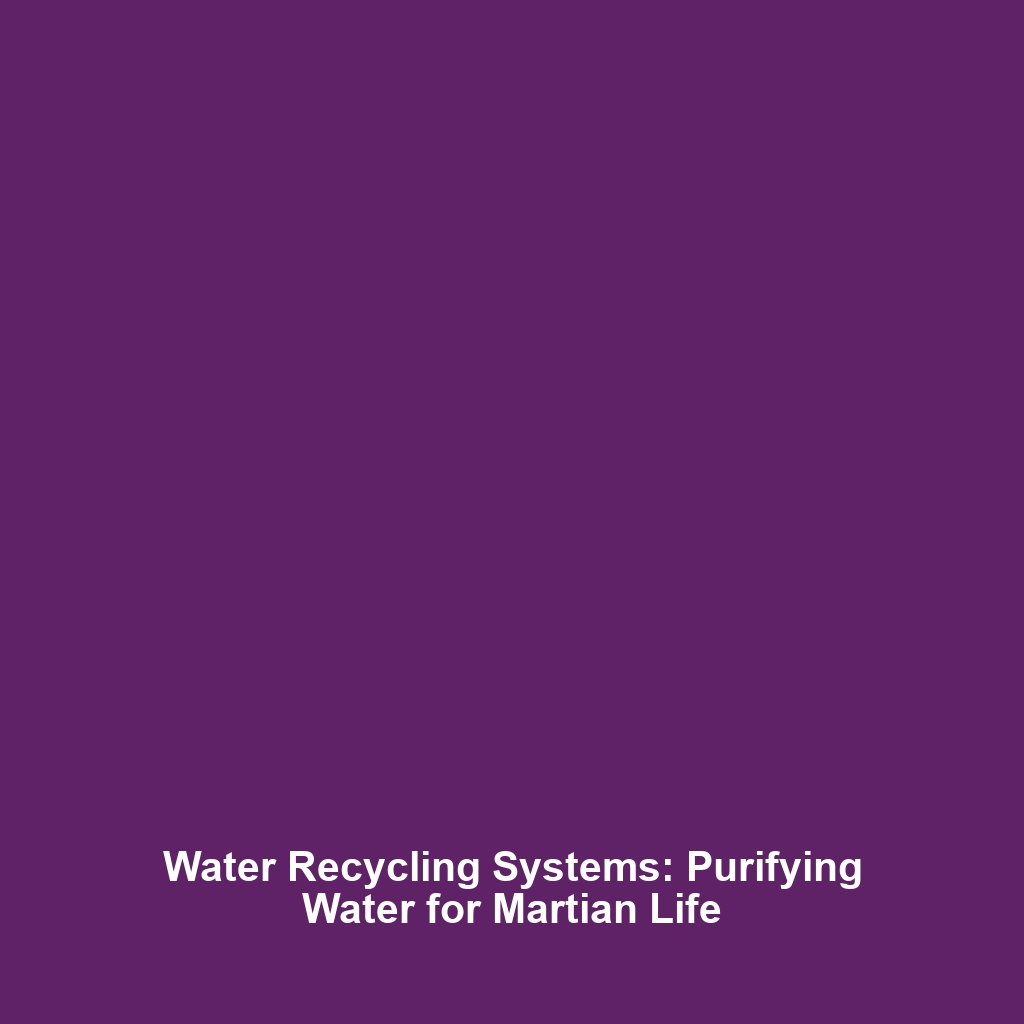Water Generation on Mars: Potential Methods to Release or Create Water on Mars for a Sustainable Environment
Introduction
The quest to colonize Mars hinges on several critical factors, with water generation being paramount. Establishing a sustainable environment on Mars requires efficient methods to release or create water, essential for human survival and agricultural practices. Innovations in water generation on Mars can pave the way for long-term colonization efforts, providing not only drinking water but also supporting diverse ecosystems. This article explores potential methods of generating water on the Red Planet, examining their significance in the broader spectrum of Martian colonization.
Key Concepts
Understanding the potential of water generation on Mars involves several key concepts:
1. Extraction from Martian Soil
Martian regolith has been identified to contain hydrated minerals. Techniques such as heating the soil could release water vapor, which can be condensed into liquid water.
2. Electrolysis of Martian Atmosphere
The Martian atmosphere, although thin, is primarily composed of carbon dioxide. Advanced methods like electrolysis may allow for the breakdown of CO2 into oxygen and carbon monoxide, providing water when combined with hydrogen from other sources.
3. Ice Mining
Regions on Mars, particularly near the poles, contain ice deposits. Mining and melting this ice can contribute significantly to water generation, ensuring a steady supply for colonists.
Applications and Real-World Uses
Innovative water generation techniques on Mars have numerous applications:
- Agriculture: Water generated can be used for growing food crops, essential for sustaining human life.
- Human Consumption: Potable water is crucial for survival, making the creation of reliable water sources a top priority.
- Industrial Uses: Water can serve various industrial processes necessary for manufacturing or energy production on Mars.
These applications highlight how water generation is utilized in the context of colonizing Mars, showcasing its fundamental role in establishing a permanent human presence.
Current Challenges
Despite promising methods for water generation, several challenges hinder progress:
- High energy requirements for extraction processes.
- Technological limitations in processing Martian soil and atmosphere.
- Uncertain availability of water ice deposits due to surface conditions.
- Environmental impacts of extraction on local Martian ecosystems.
Understanding these challenges is vital for overcoming issues in the broader scope of colonizing Mars.
Future Research and Innovations
Future research is focused on advancing technologies that enhance water generation techniques:
- In-Situ Resource Utilization (ISRU): Continued development in ISRU technologies can improve the efficiency of water harvesting directly from Martian resources.
- Sustainable Methods: Innovations focused on sustainability will be essential to ensure that water generation does not deplete natural Martian resources.
- Robotic Exploration: Increased robotic missions are expected to gather data on water sources, helping identify the most efficient extraction locations.
These advancements position future colonists for success by establishing sustainable environmental conditions on Mars.
Conclusion
Water generation on Mars is not just a scientific endeavor; it is a vital element in the plans for colonizing Mars. By exploring and developing effective methods to release or create water, we can pave the way for sustainable human presence on the Red Planet. As research continues, it is essential to invest in technologies that will foster these efforts. For more information on this subject, consider exploring our articles on Martian exploration technologies and sustainable ecosystems on Mars.
